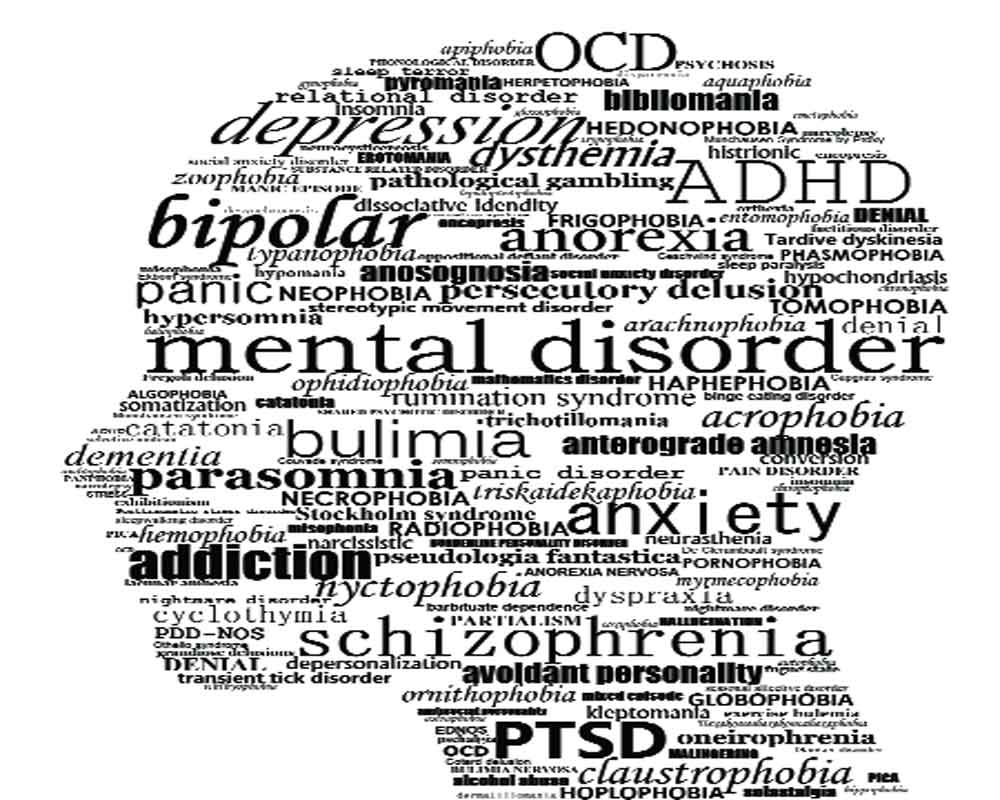May is observed as Mental Health Awareness Month. With the Covid-19 pandemic taking a toll on our collective wellness, it’s now more important than ever to practice empathy daily with ourselves as well as others to ensure our emotions are regulated, we are connected with others, and feel less isolated. ARCHANA JYOTI reports.
Last month, the World Health Organisation (WHO) flagged concerns that anxiety and depression have increased more than 25 per cent since the onset of the Covid-19 crisis. Young people and women are the worst hit.
The global health agency also pointed out that concerns about potential increases in mental health conditions have already prompted 90 per cent of countries to include mental health and psychosocial support in their Covid-19 response plans, though major gaps and concerns still remain.
India on its part has launched teleservices in the healthcare sector to help affected people deal with mental health disorders. But just depending on the teleservice to sort out mental health problems is not enough. For, India is already burdened with huge mental health issues so much so that in 2017, President Ram Nath Kovind asserted that the country is “facing a possible mental health epidemic” and much more needs to be done. This includes prevention services for all, early identification and intervention for those at risk who need more number of professionals in the sector; and access to integrated care and treatment for those who need it to ensure their holistic treatment.
Reports say that one in 5 adults will be diagnosed with mental illness or disorder. We all know that mental health is a critical component of overall wellness. There is no denying the fact that intervening effectively during the early stages of any disease can save lives, and that’s true for people living with mental health conditions also.
However, in countries like India, mental health issues continue to be mired in stigma and fear of ostracization. Moreover, treatment is considered to be too expensive and a lengthy process in view of the shortage of professionals.
As a result, what can be treated in time, the gap worsens the disease. So much so that at times it becomes chronic, requiring lifelong management.
In actuality, mental health discussion is yet to be reached to the point of acceptance. So, when celebrities like Deepika Padukone, Anushka Sharma, and Hrithik Roshan share their stories of struggles about seeking help to deal with mental health issues, the message is sent far and wide that ‘you are not alone’ in seeking help from a mental health professional. Usually, when people’s role models are willing to talk about their struggles, their followers feel like there is no abnormality in having mental issues.
Shubhrata Prakash, an Indian Revenue Services officer who has penned down her journey of depression in the book ‘The D Word’, tells you that she had been trying to dignify mental disorders. “For someone having an anxiety disorder, you will never know the battle they are fighting with themselves. These psychosocial inabilities exist. People having it must keep their dignity and talk about it and sensitize people around,” she says. And that’s what she has been doing very sensitively.
Many factors contribute to mental health problems such as biological factors like genes, physical illness, injury, or brain chemistry. Others are Life experiences, such as trauma or a history of abuse. However, contrary to general perception, people with mental health problems can get better and many of them recover completely if detected early and given timely and adequate treatment, says Dr. Smita Deshpande, former head of the Centre of Excellence in Mental Health, ABVIMS- Dr. RML Hospital, Delhi.
It is important to understand why we suffer from psychological disorders, she asks. “... like a nuclear family where there is no one to share our issues with, too much professional workload, competition in every sphere of life to perform better than others, and a high expectation level from parents. All are taking a toll on our mental health,” Dr. Deshpande explains.
Doing his bit, wrestler and motivational speaker Sangram Singh is soon planning to launch a program to highlight the stigmas associated with mental illness and substance use disorder. “Wherever I go to interact with youngsters, I am often asked about how to attain physical fitness goals. But, I often tell them that more than physical fitness, they should aim at mental health, growth, and discipline.
“Being healthy is more important than being fit. Youth are going through lots of mental health issues. We should encourage them to talk about it, discuss it. It is high time we should address mental health issues among youngsters and encourage them to aim for overall health,” he says matter-of-factly.


























